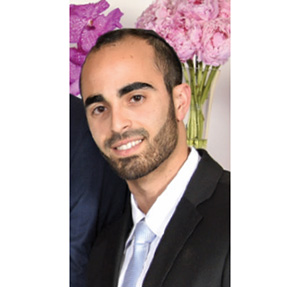
Last week we discussed the importance of offering a positive gesture to another person, and how powerful—even something small of that sort—can actually be. We also discussed how we can easily sidestep this responsibility due to our hectic schedules and lives that we must upkeep. So the question becomes: how much are we really expected to pay attention to the needs of others? Many of us live busy lives, with our goals in mind, trying to reach and meet our responsibilities that are dependent on our diligence and single-mindedness. It can become quite hard to come out of that cocoon and notice the needs of another, and even if we do notice, being of help and service is another aspect that additionally involves a compromise in our own personal pursuits. So, let’s discuss a bit…
The Torah in this week’s parsha commands us to return a lost ox or lamb, upon sighting them, to their owner, and warns us not to act as if we never saw the animal and continue our way (see Devarim 22:1). The Ibn Ezra points out that this obligation applies even when one is going to war.
Let’s picture the scene of what it means to be a soldier going to war, generally speaking: Extreme tension, darkness looming in the air; anxiety, fear, and trepidation; a hyper-awareness of one’s duty and mission, tunnel vision, rapid breathing and muscle tension. The fight or flight response is at its peak, and what that means is that nothing really matters except one’s survival and fulfilling the command(s) expected of him. But yet, the Ibn Ezra is informing us that the obligation mentioned in the pasuk above applies even when one is going to war. How can this be, amongst a myriad of such possible heavy emotions? Rav Henoch Leibowitz says this should teach us how much our minds need to be open to being careful of another person’s needs and feelings. Through this obligation, the Torah is testifying that we have the capability to notice the needs of our friend and his property even in the most trying times. And even though our focus may be on our own survival, nevertheless we can, and must, be conscious of our neighbor’s needs at all times.
We carry a dual responsibility: attending to our own needs, while also being mindful of the needs of others. It’s common, due to our nature, to become so engrossed and preoccupied in our own responsibilities that we can sometimes ignore or not even see the needs of others. There’s a famous story told of Rav Yisrael Slanater who on one year on Erev Yom Kippur passed a righteous man on the street. The man’s fear of God and the impending awesome judgment was so apparent that tears were noticeably coursing down his cheeks. When Rav Yisrael asked him about a certain pressing matter, the man was so focused on Yom Kippur that he simply did not respond and he continued walking. Afterward, Rav Yisrael commented, “After I passed this man I thought in my heart, ‘Why am I at fault because he has fear of ‘Heaven’ and trembles from the Day of Judgment? Why is that relevant to me? Aren’t you obligated to pleasantly answer my question, because that is the proper conduct according to the paths of goodness and kindness?’” Indeed, sometimes “we get in the zone,” but we may need to consider whether that zone excludes other people’s feelings or others who may need our help.
In this month of Elul, a unique time geared for examining our ways and our lives in general, it’s a good idea to reflect specifically on the quality of our “bein adam l’chavero,” the emphasis (or lack of which) we may put on how we relate to another human being. One of the easiest ways of slipping up is with our family, our loved ones who are most immediate to us. We become so regular with them that “our zone” can often exclude them or even become a source of pain to them. Rav Henoch used to joke about the people living in the ‘60s, where they would proudly advocate the motto of “peace and love.” He would remark that they say peace and love in reference to the people they don’t know, but let’s see if they really abide by that motto when it comes to their family and closest constituents. We don’t always need to go too far; much of the work that needs to be done is right under the roof we live under.
By Binyamin Benji
Binyamin Benji is a graduate of Yeshivas Rabbeinu Yitzchak Elchanan, and Wurzweiler School of Social Work. He currently learns in Lakewood, and is the author of the Sephardic Congregation of Paramus’ weekly Torah Talk. He can be reached at benjibenji26@gmail.com.










